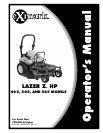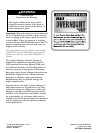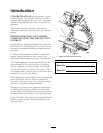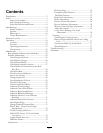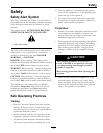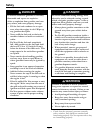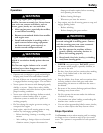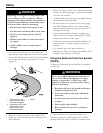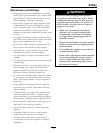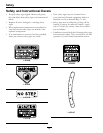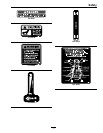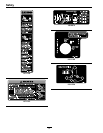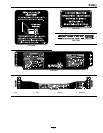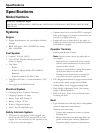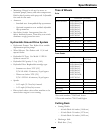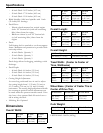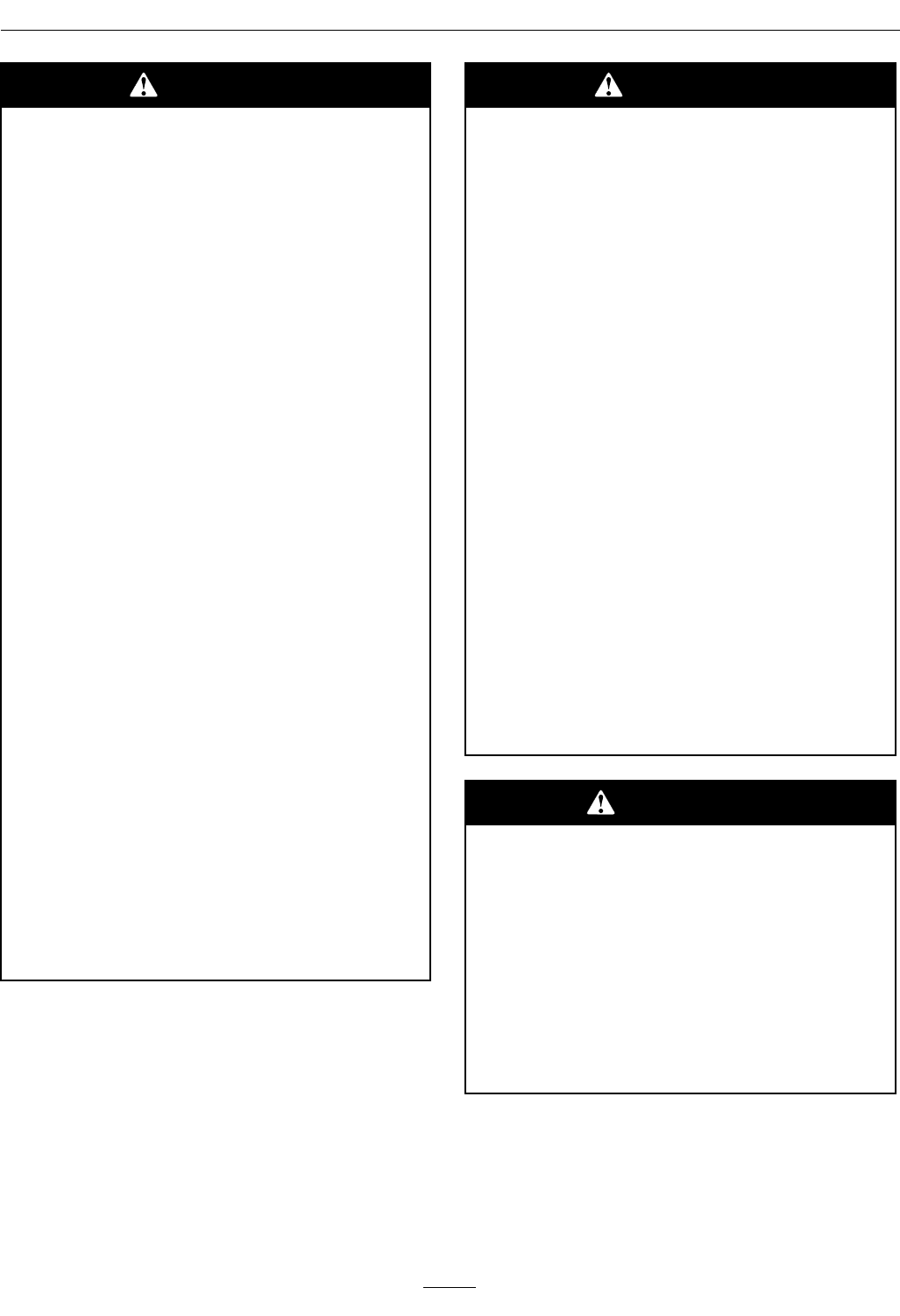
Safety
DANGER
In certain conditions gasoline is extremely
ammable and vapors are explosive.
A re or explosion from gasoline can burn
you, others, and cause property damage.
• Fill the fuel tank outdoors in an open
area, when the engine is cold. Wipe up
any gasoline that spills.
• Never rell the fuel tank or drain the
machine indoors or inside an enclosed
trailer.
• Do Not ll the fuel tank completely
full. Add gasoline to the fuel tank until
the level is 1/4 to 1/2 inch (6–13 mm)
below the bottom of the ller neck. This
empty space in the tank allows gasoline
to expand.
• Never smoke when handling gasoline,
and stay away from an open ame or
where gasoline fumes may be ignited by
spark.
• Store gasoline in an approved container
and keep it out of the reach of children.
• Add fuel before starting the engine.
Never remove the cap of the fuel tank or
add fuel when engine is running or when
the engine is hot.
• If fuel is spilled, Do Not attempt to start
the engine. Move away from the area of
the spill and avoid creating any source of
ignition until fuel vapors have dissipated.
• Do Not operate without entire exhaust
system in place and in proper working
condition.
DANGER
In certain conditions during fueling, static
electricity can be released causing a spark
which can ignite gasoline vapors. A re or
explosion from gasoline can burn you and
others and cause property damage.
• Always place gasoline containers on the
ground away from your vehicle before
lling.
• Do Not ll gasoline containers inside a
vehicle or on a truck or trailer bed because
interior carpets or plastic truck bed liners
may insulate the container and slow the
loss of any static charge.
• When practical, remove gas-powered
equipment from the truck or trailer and
refuel the equipment with its wheels on
the ground.
• If this is not possible, then refuel such
equipment on a truck or trailer from a
portable container, rather than from a
gasoline dispenser nozzle.
• If a gasoline dispenser nozzle must be
used, keep the nozzle in contact with the
rim of the fuel tank or container opening
at all times until fueling is complete.
WARNING
Gasoline is harmful or fatal if swallowed.
Long-term exposure to vapors has caused
cancer in laboratory animals. Failure to use
caution may cause serious injury or illness.
• Avoid prolonged breathing of vapors.
• Keep face away from nozzle and gas
tank/container opening.
• Keep away from eyes and skin.
• Never siphon by mouth.
• Check that the operator’s presence controls,
safety switches, and shields are attached and
functioning properly. Do Not operate unless they
are functioning properly.
6



